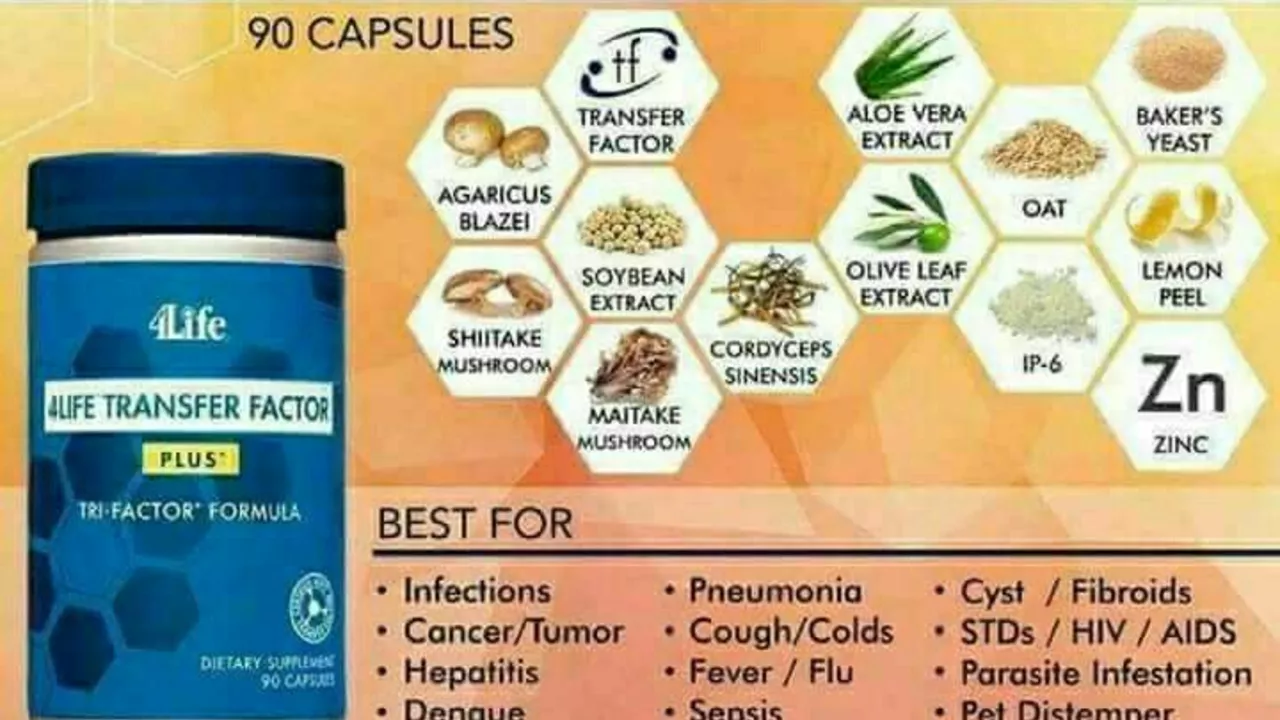Transfer Factor: What It Is and How It Helps Your Immune System
Heard about transfer factor and not sure what it actually does? Transfer factor is a type of immune messenger often sold as a supplement. People use it to support immune response, but real effects and safety depend on the product and your health. This guide gives straight answers, no hype.
What transfer factor means in plain language
Transfer factors are small molecules taken from sources like cow colostrum or egg yolk. They’re not whole cells or antibodies — they’re signals that can “teach” part of the immune system how to react. Makers claim these signals help the body remember or respond better to infections. Some small clinical trials and pilot studies report immune changes, but robust large trials are missing, so claims vary.
If you think of the immune system as a team, transfer factors try to be a coach that passes quick notes between players. That analogy helps but don’t mistake supplements for a cure. They’re tools not replacements for vaccination, prescribed medicines, or doctor advice.
Uses, safety, and practical buying tips
People try transfer factor for recurring infections, chronic fatigue, or general immune support. Results are mixed: some users say they feel fewer colds, others notice no change. If you’re on immunosuppressants or have autoimmune disease, be cautious — anything that stimulates the immune system could cause issues.
Safety notes you should know: transfer factor supplements are not regulated like prescription drugs. The U.S. FDA hasn’t approved them to treat diseases. Side effects are usually mild (digestive upset, allergic reaction). Serious reactions are rare but possible, especially if you have egg or dairy allergies depending on the source.
Buying smart matters. Look for brands that list the source (bovine colostrum or egg), provide standardized dosing, and publish third‑party lab tests for purity and contaminants. Avoid products that promise miracle cures or list dozens of diseases they can treat. Check reviews but focus on transparent lab results and company reputation.
Practical dosing tip: follow the manufacturer’s instructions and start low to see how you react. Talk to your doctor if you’re pregnant, breastfeeding, on immune meds, or have a chronic condition. Keep a log for a few weeks so you can track any changes in symptoms or side effects.
Quick checklist before you buy: 1) source and allergen info, 2) third‑party testing, 3) clear dosing instructions, 4) transparent company contact details, and 5) medical advice if you’re on other treatments.
Want to try it? Treat transfer factor as an experimental, supportive item—not a primary treatment. Ask your healthcare provider, be selective about brands, and watch how your body responds. If something feels off, stop and consult a clinician.
Transfer Factor: The Miracle Molecule for a Stronger Immune System
In my recent research, I've come across an amazing discovery known as Transfer Factor, often referred to as a 'miracle molecule'. This naturally occurring compound is believed to significantly bolster our immune system, providing us with increased defense against diseases. It works by transferring immunity information from one entity to another, hence the name. The health implications of this are immense and could revolutionize how we approach immune health. Personally, I find it incredibly exciting and can't wait to see how this field develops.
